Joy of the Elephants
COVID-19 pandemic forced a mahout to make heartbreaking choices but both man and elephant have finally found sanctuary
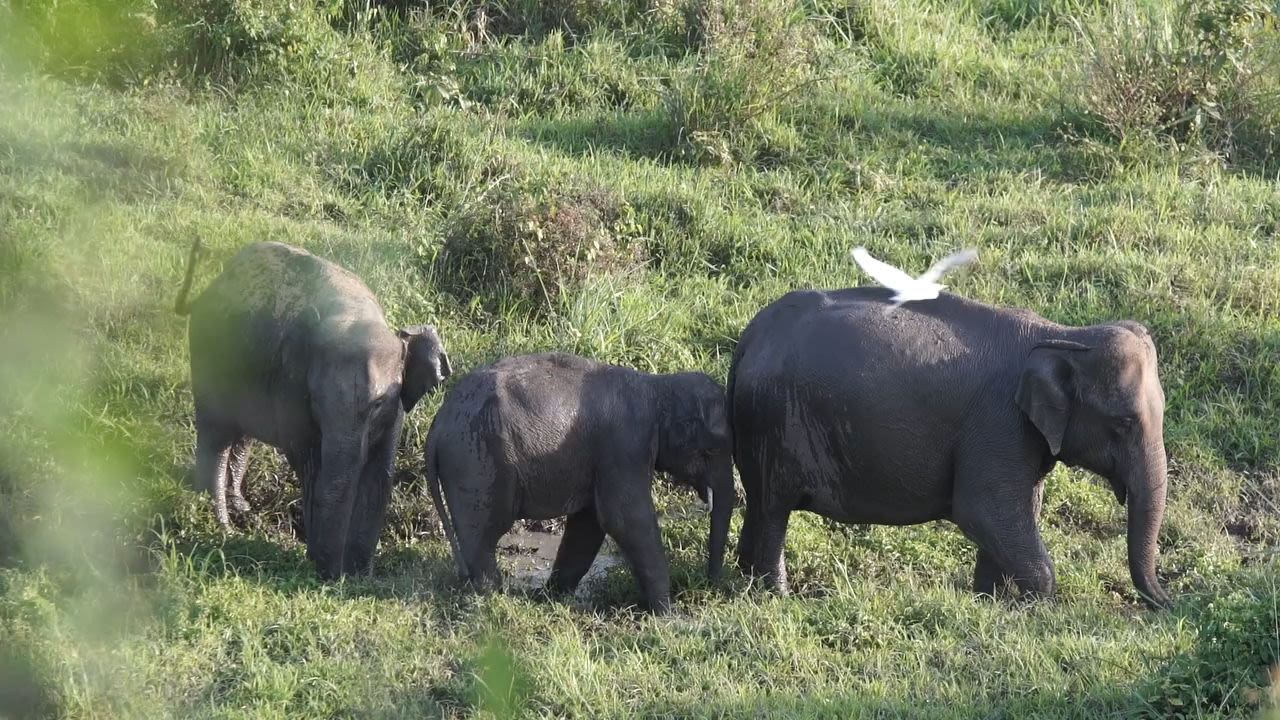
This story is part 2 of the series "Listening with the heart through generations" in which 11-13 year-olds tell the stories of those living on the fringe of society in Asia and how they found strength and inspirations to endure through decades of hardship and heartbreaks.
In partnership with D-PREP International School and Dreikönigsaktion Austria
Boonmee ‘Joy’ Singhkorn smiled as he slowly walked beside his beloved elephant Nooknik. They cautiously approached the muddy river alongside the group of elephants, ready for the morning bath. He was wearing his usual outfit of a mo hom shirt (traditional Thai shirt), jeans and a red loincloth tied around his waist to keep it together.
Joy’s journey as a mahout (elephant trainer or rider) started when he was 12 years old, when he finished grade 6. He has been with elephants since he was 4 years old, walking with them in the forest with his uncle.
Despite not having a traditional academic education, Joy is very happy with how his life has turned out. He has stated that if he is not a mahout, taking care of elephants, he would be a farmer growing crops back in his hometown Buriram (about 300km northeast of the Thai capital Bangkok) or he would just stay at home and be unemployed.
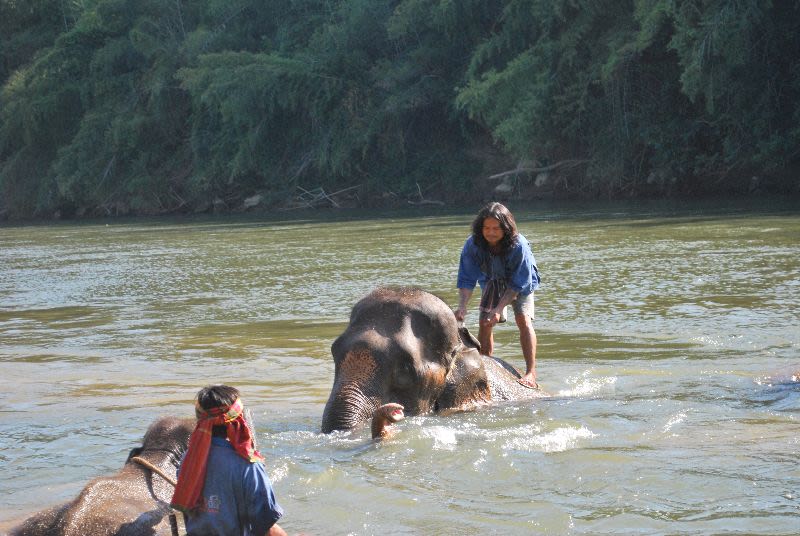
Mahout Boonmee ‘Joy’ Singhkorn with his elephant 'Nooknik' at the Elephants' Home and Nature sanctuary in Kanchanaburi, Thailand.
Mahout Boonmee ‘Joy’ Singhkorn with his elephant 'Nooknik' at the Elephants' Home and Nature sanctuary in Kanchanaburi, Thailand.
Background photo by Frida Aguilar Estrada
Pandemic's cruel dilemma
At the Elephants' Home and Nature in Kanchanaburi, where Joy works, he is an active part of his small community. He is described as charming and good at entertaining. His days are consumed with the duties of taking care of Nooknik, being her best friend, a guardian and her soulmate. For Joy, an elephant’s mind is just like a human’s, full of sensitivity and cleverness.
However, when the COVID-19 pandemic hit Thailand, the courageous mahout was forced to take his cherished elephants to be a taxi elephant.
Cold-hearted people sit on these poor elephant’s necks all the time. He was too poor, he had no choice but to do this. It was for his survival.
Joy experienced a terrible life in the logging industry located at Phuket, the tourist island in Thailand's south. Having to part ways with his dearest elephants, Joy lived the life of a worker in the logging industry.
The mahout and his colleagues had to chop the wood from the top of the mountain and the elephant had the laborious job of dragging the wood all the way down.
Forcing the elephant to do this has its difficulties.
One person sits on the neck and uses a whip to hit the elephant to walk faster, another person has a spear to pierce the elephant if they don’t walk and the third person has a lighter to light the tail of the elephant to walk faster.
If it is a male elephant, they will light his penis.
Everyday, this was the routine for 4 hours and then a short break. One trip to the top of the mountain, the elephant drags 4-5 pieces of wood varying in sizes. These elephants were treated like slaves, as Joy has seen.
He had always wished for these elephants to be free, he could understand how they felt.
The elephants might think “Oh, humans are so small, what could they possibly do to me?”
Still, humans use their cruel, violent ways of harming the elephants. This is why weapons are a must in the logging industry. Harming the elephants seems to be the only way to make them obey you.
They were wrong.
Background photo by Lauren Kay
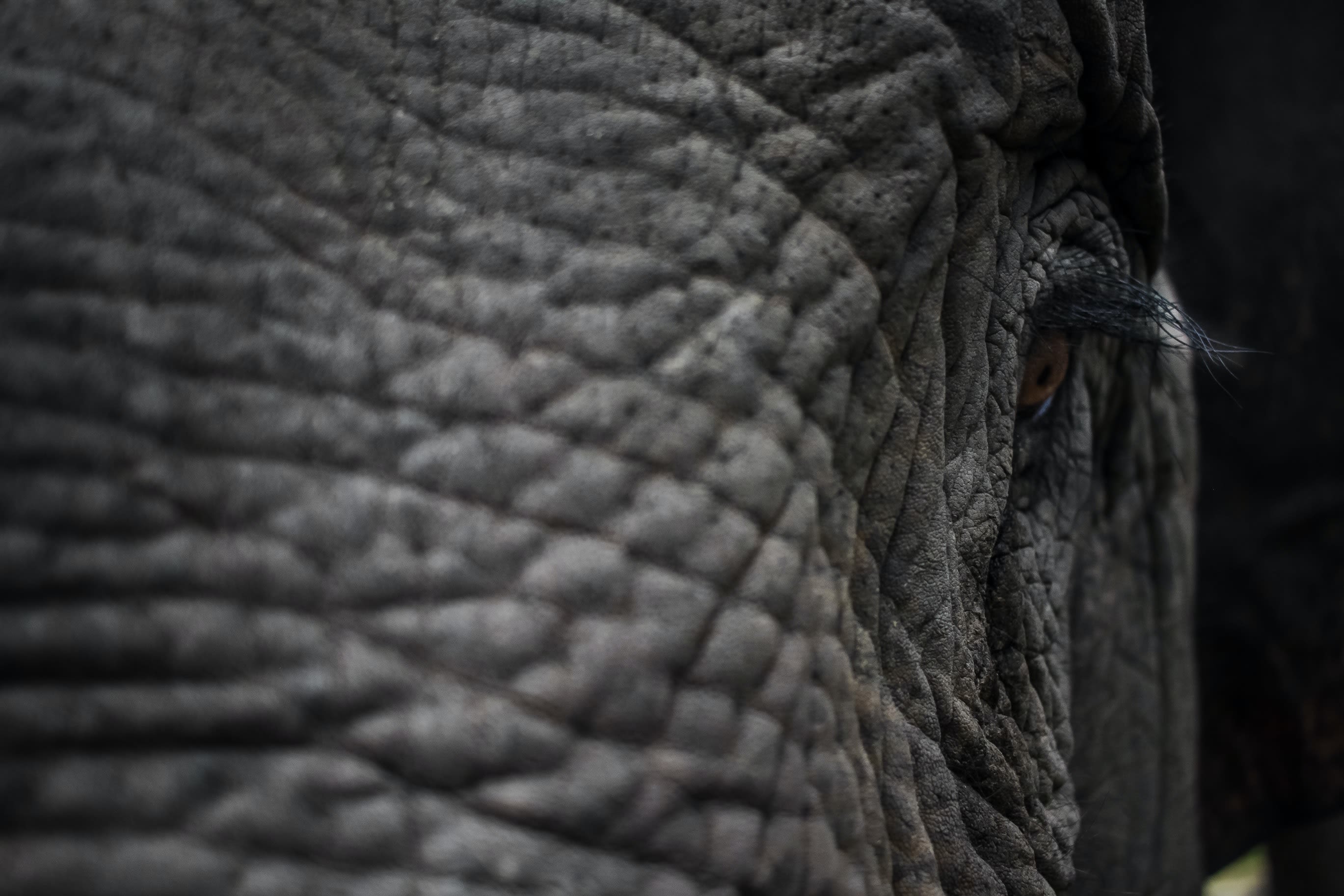
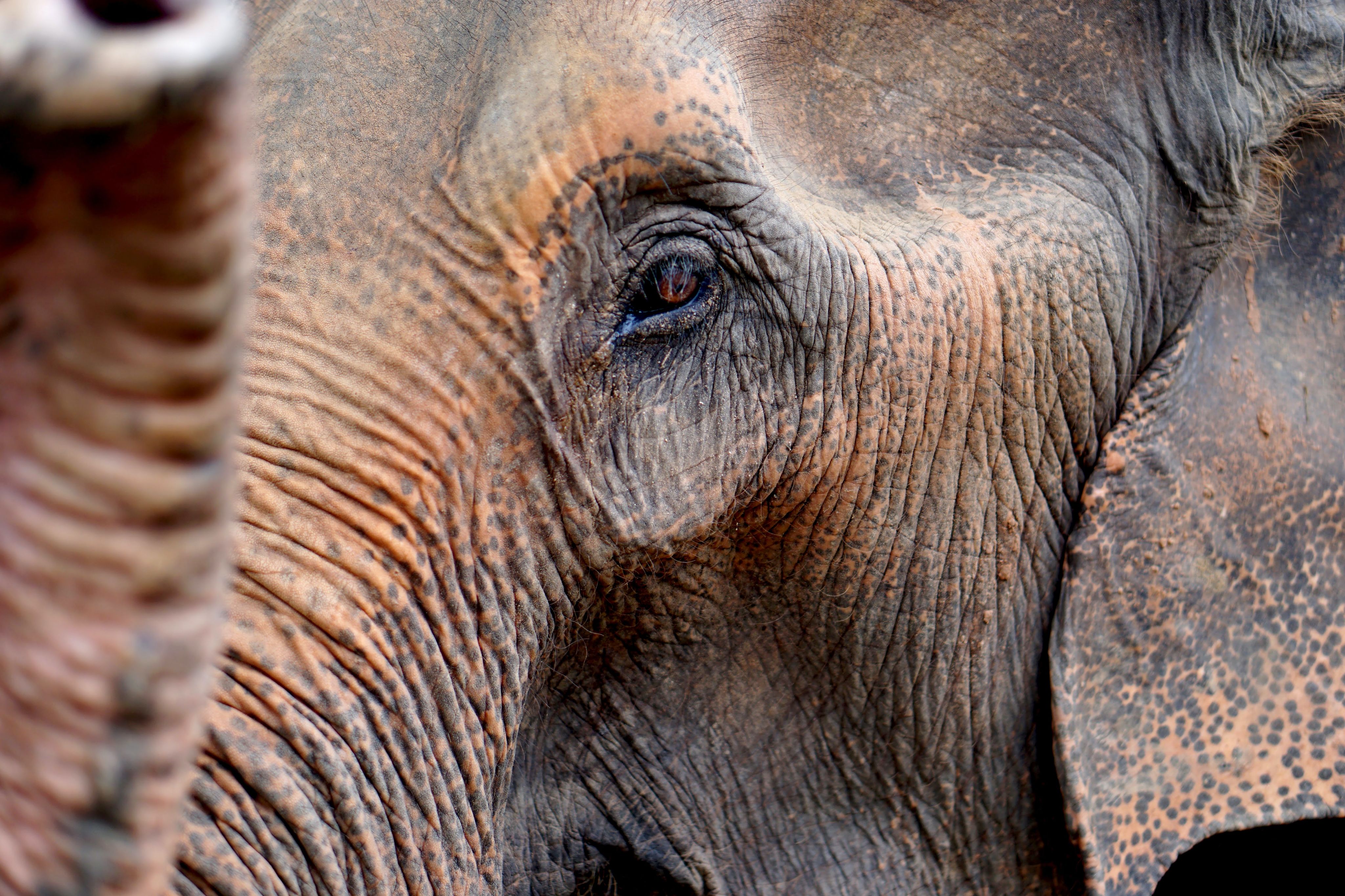
Learning the hard way
Sometimes, we learn lessons from painful experiences.
Joy thought if he sold his elephants and worked in the logging industry, he would be happy because he would earn a good amount of money.
He was devastated seeing the animals that he cherished so dearly be abused and sometimes even killed.
Seeing the elephants being treated like this, he even felt hurt himself. He learnt the hard way that money isn’t happiness.
Even though money is important it is more important to do what makes you happy, for Joy his whole heart is owned by the elephants.
Making a life out of this particular passion requires a lot of patience, practice and experience.
Even if he earns less money with his current occupation, teaching tourists about elephants and entertaining them, taking care of Nooknik, at least he is happy and that is all that matters.
Dedicated people like him will try everything in order to survive. But in the end they will always come back to what they love, and for Khun Joy that is the elephants.
He described it as an invisible string which pulls him back to the elephants.
He was born to be with the elephants.
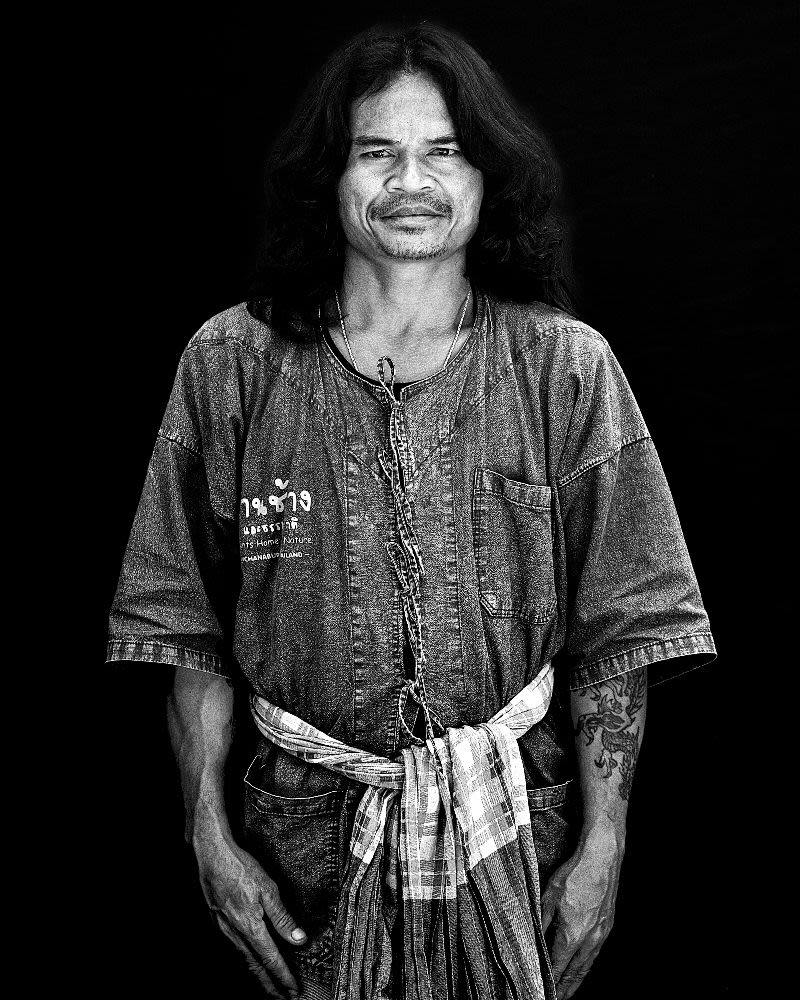
Boonmee ‘Joy’ Singhkorn
Boonmee ‘Joy’ Singhkorn
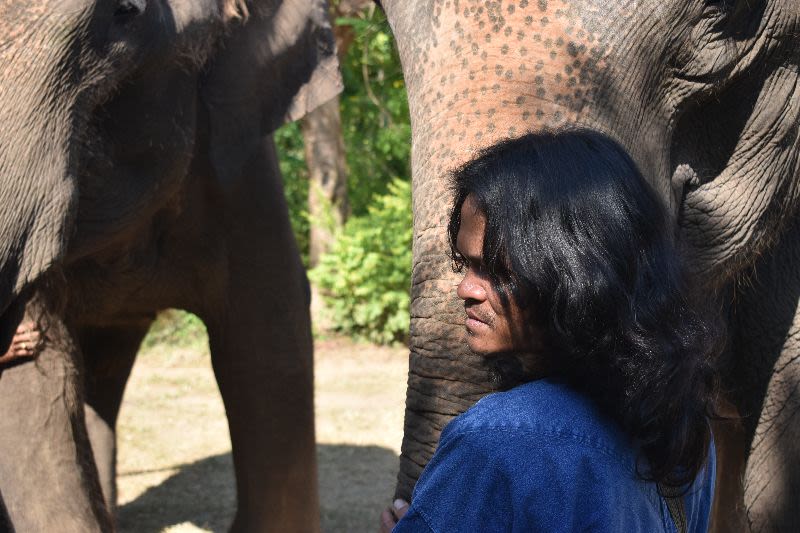
Mahout Boonmee ‘Joy’ Singhkorn with his elephant 'Nooknik' at the Elephants' Home and Nature sanctuary in Kanchanaburi, Thailand.
Mahout Boonmee ‘Joy’ Singhkorn with his elephant 'Nooknik' at the Elephants' Home and Nature sanctuary in Kanchanaburi, Thailand.
REFLECTIONS
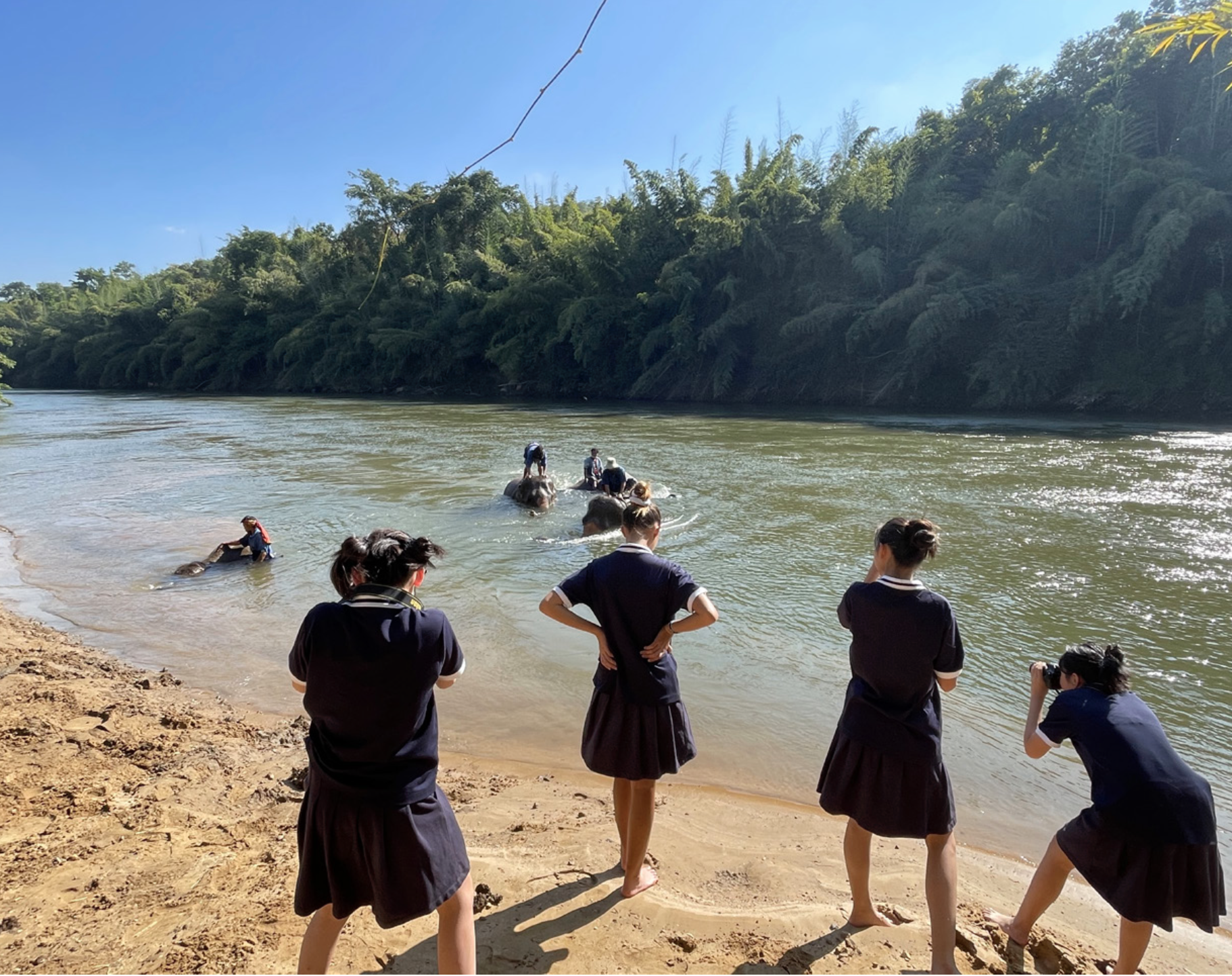
Fleur’s Reflection
These past few months have been very busy. Taking part in this experience made me realize how capable I am with conducting interviews and writing them into interesting articles for people to read.
I had to make the interviewee feel comfortable to open up to me and share their personal life stories and lessons, so I had to use good interview skills and body language. I had to make the person trust me enough to share information about them.
The person I interviewed is Khun Joy, an elephant mahout, who has dedicated his whole life to be with the elephants which I find really inspiring.
He gave up his education and knew what he wanted to do in life since he was a child.
If I want to become a journalist or an interviewer, I have the experience and skills I need to do so since this can be compared to the real work of a journalist. This can also be part of my portfolio which is useful for applying to college.
This experience helped me show active citizenship because I have learnt more about the rural side of Thailand and other people’s life experiences. I am demonstrating active citizenship by donating to the Elephants' Home and Nature.
I am helping them with their financial issues, as Khun Tong (the owner of Elephant’s Home and Nature) is in huge debt trying to save the elephants which shows how kind hearted she is. Even the smallest amount of money will help to save the elephants since they are being mistreated and harmed in many different places in the world.
Passionate people would give up anything to stop this cruelty and abuse humans do to the poor helpless elephants. This experience has taught me how to be thankful for what I have and compassionate for others and I will benefit and use the skills I learnt along the way in my future.
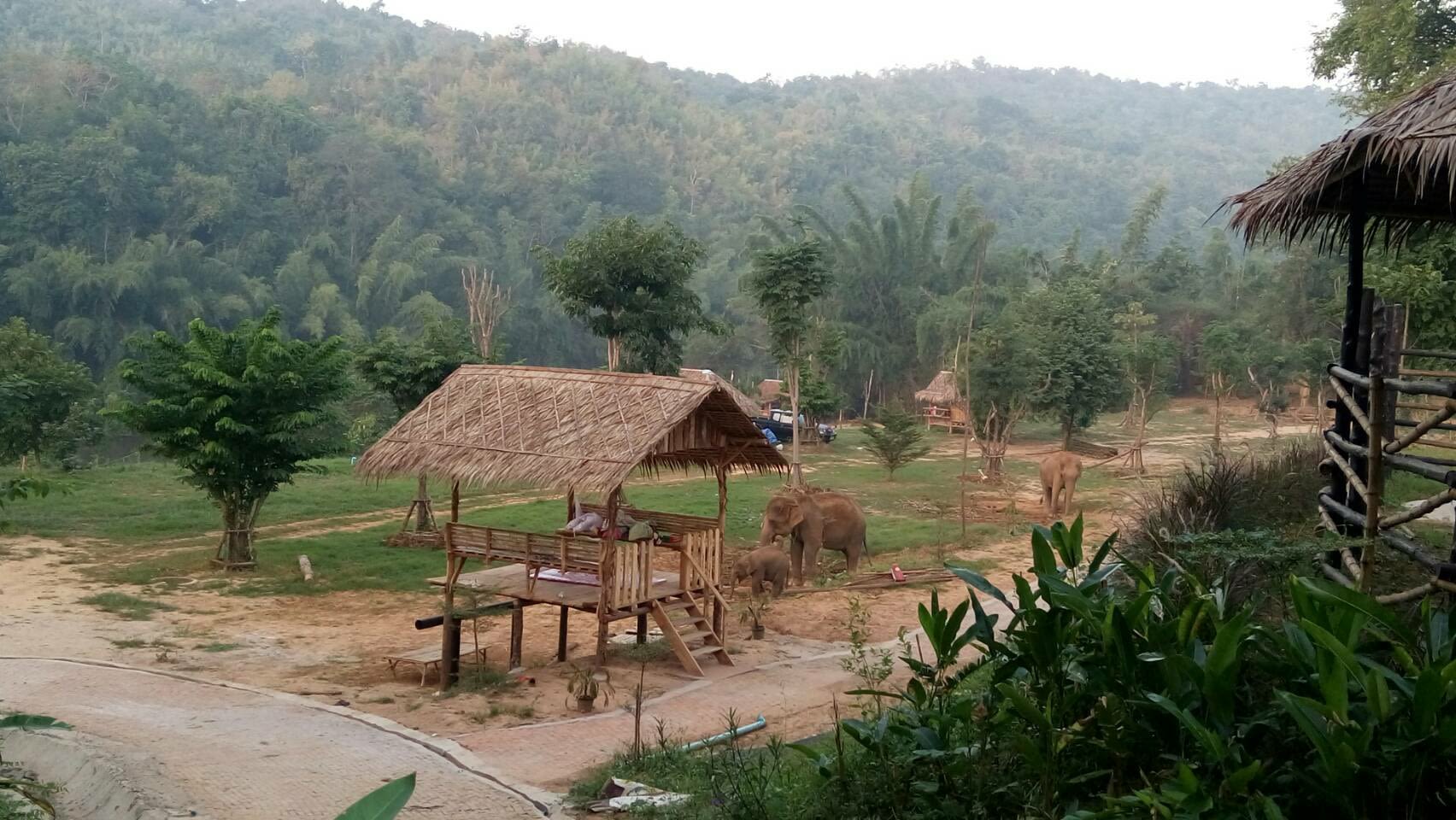
The Elephants' Home and Nature sanctuary in Kanchanaburi, Thailand.
The Elephants' Home and Nature sanctuary in Kanchanaburi, Thailand.
Aoey’s Reflection
During this experience, I had the opportunity to interview Khun Joy. I was inspired by Khun Joy because he is wise and he perseveres during tough times.
When he didn’t have food to eat or didn’t have money to buy anything, he always found a way to solve it.
For example, during Covid times, he did not have money so he needed to bring his elephant to the logging industry. However, Khun Joy did not want to hurt his elephant in the logging industry for too long. So, he just stayed there for a month and he went out and found a place to go.
The solution always turned out really good and better than he was thinking before. That is something that inspires me.
I want to be wise and persevere like Khun Joy, so when I don’t have any idea on how to solve my problems or any way to help myself from that problem, I can think more like him and resolve everything.
Talking to Khun Joy wasn’t easy at first, however I used my social skills so I can connect with him on a personal level. I made him feel comfortable as if I was one of his family members. I wanted him to feel like he could talk with me about everything.
After Khun Joy felt comfortable, he started to tell me about his family, and this also made him more open to everyone.
Khun Joy is a really strong person. He did not give up even when he did not have any money.
He worked hard to find money to feed his elephant, Nooknik. Khun Joy will always remind me to be strong when I feel like giving up. Also, if I feel sad or depressed, Khun Joy reminds me to keep moving forward.
During our visit to the sanctuary when we interviewed Khun Joy, I donated some money to the Elephants' Home and Nature because I want to help the elephants to have more food and also to help Khun Joy.
I also wrote an inspirational article about Khun Joy so, many people can know more about the very selfless Khun Joy.
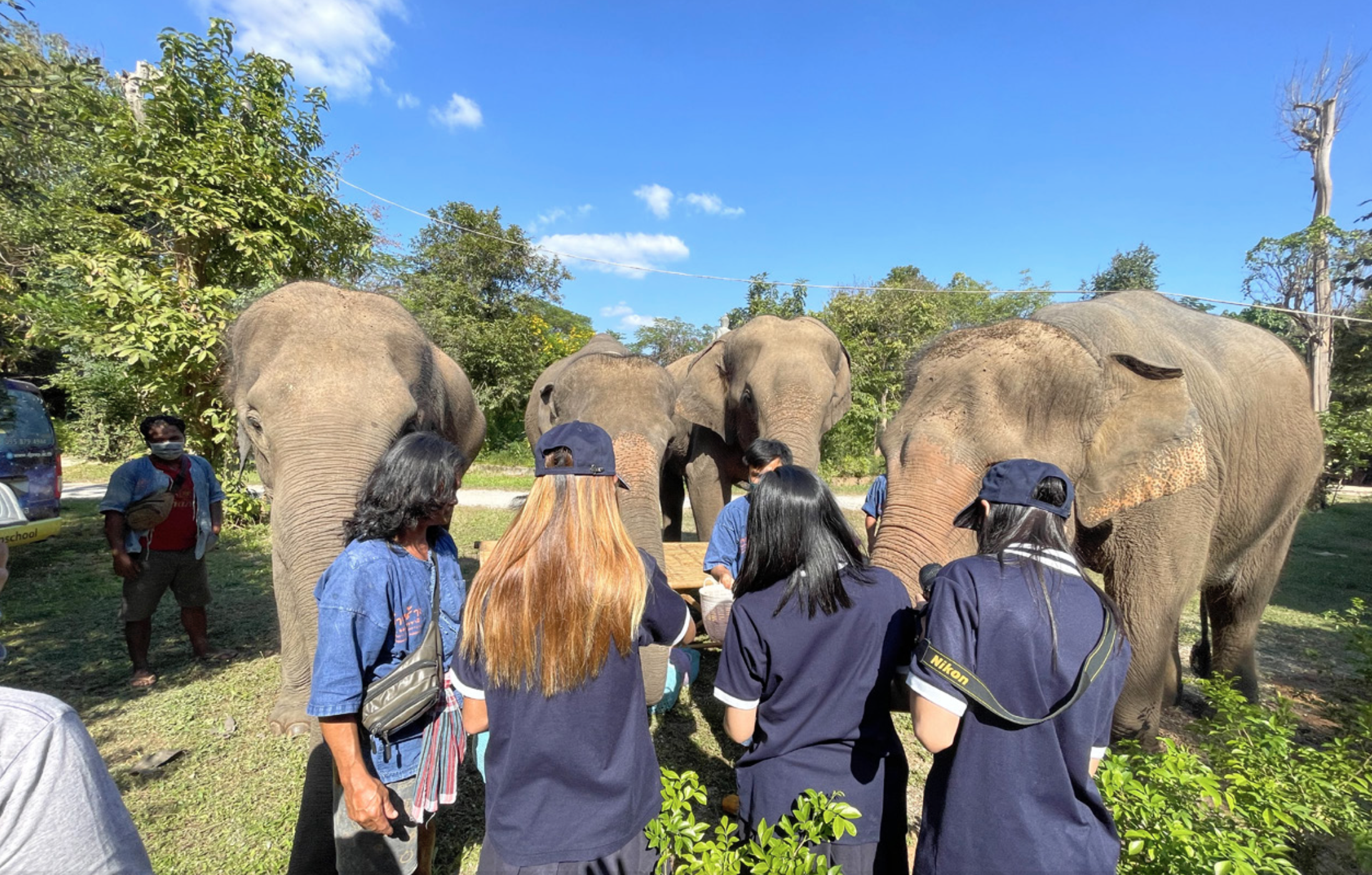
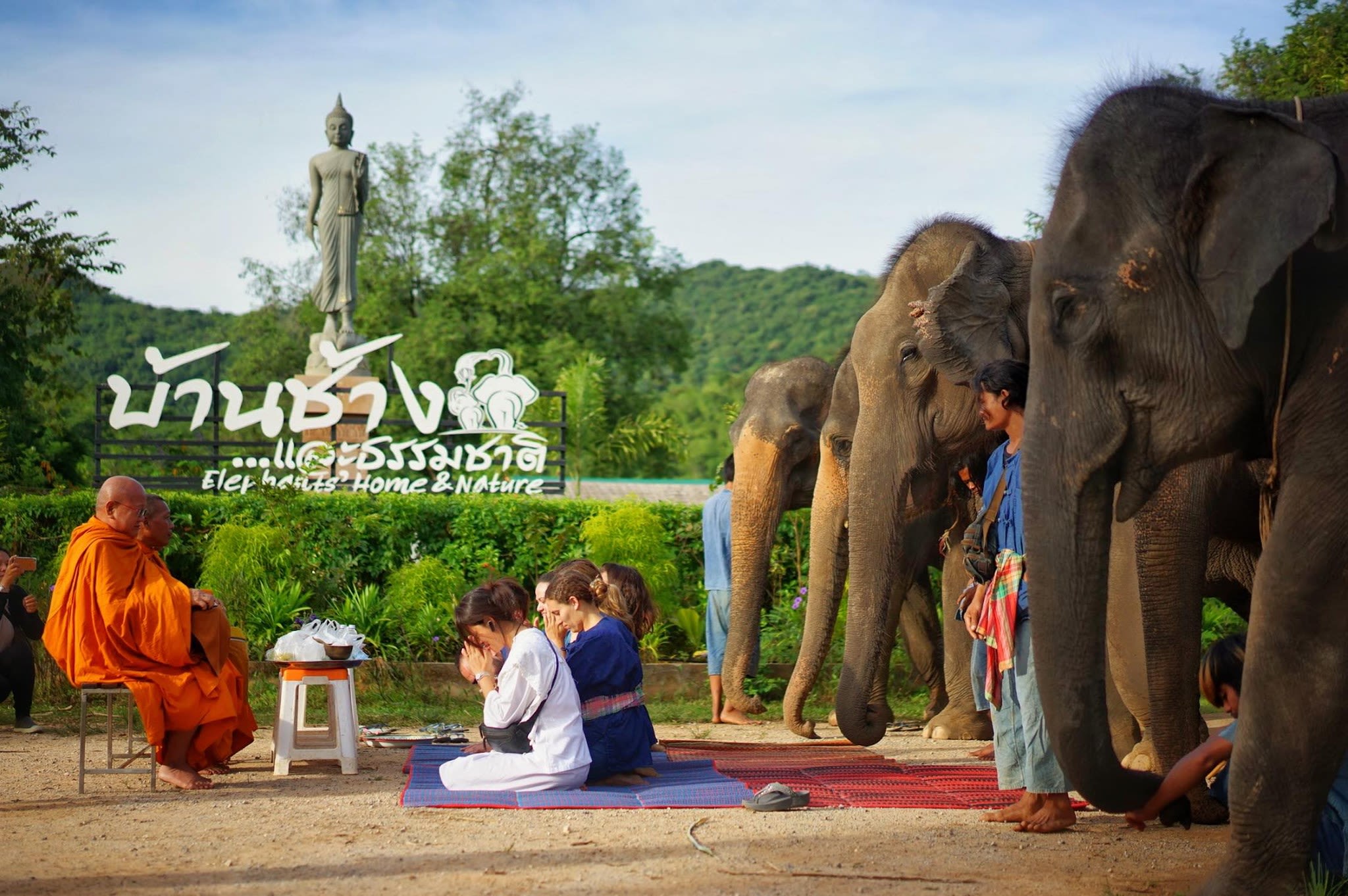
A morning at the Elephants' Home and Nature sanctuary in Kanchanaburi, Thailand (Photo by Elephants' Home and Nature)
A morning at the Elephants' Home and Nature sanctuary in Kanchanaburi, Thailand (Photo by Elephants' Home and Nature)
